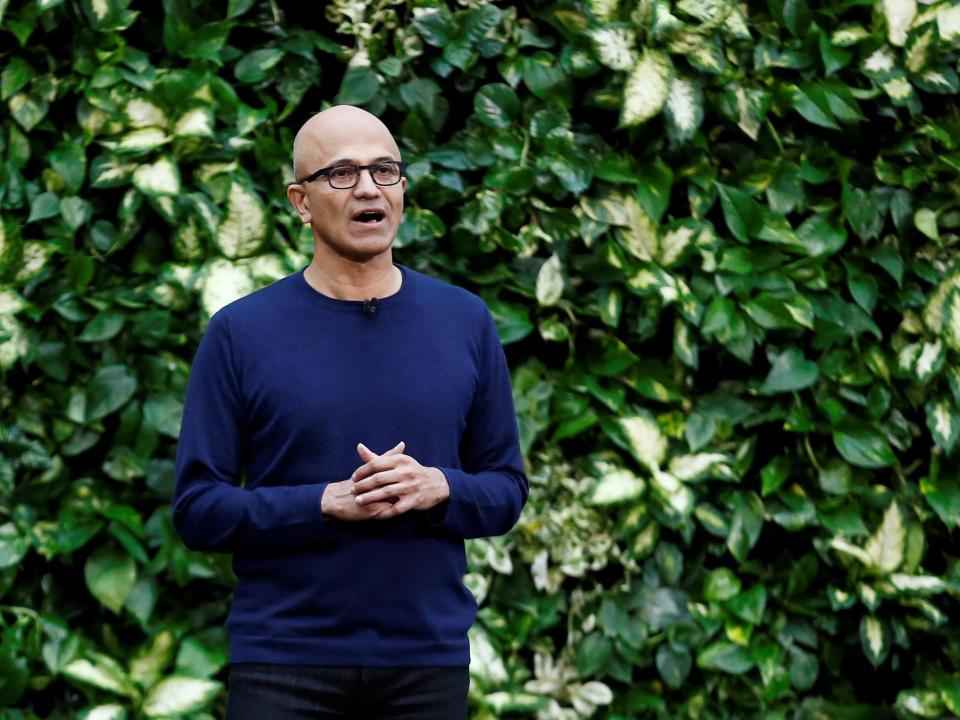Microsoft pledges to completely remove carbon footprint amid criticism over work with oil giants

Microsoft has promised to remove as much carbon as it has put into the atmosphere by 2050 – a goal critics say is undermined by the tech-giant’s ongoing contracts with some of the largest contributors to greenhouse gas emissions in the world.
The pledge – one of the most ambitious to be undertaken by a Fortune 500 company – includes the creation of a “Climate Innovation Fund”, which will invest $1bn (£760m) over the next four years to speed up the development of carbon removal technology.
Speaking from Washington, chief executive Satya Nadella said the company would seek to be carbon-negative – taking more carbon out of the atmosphere than it puts in – by 2030.
“If the last decade has taught us anything, it’s that technology built without these principles can do more harm than good,” he said.
“We must begin to offset the damaging effects of climate change,” Mr Nadella added, commenting that if global temperatures continue to rise unabated “the results will be devastating”.
The move was lauded by politicians with the US – with Democratic senator Chris Coons and Republican Mike Braun, both chairs of the bipartisan Senate Climate Solutions Caucus, describing the mood as “exactly the kind of bold action we need from the business community”.
However, it is unclear how the pledge will run alongside Microsoft’s work with giants in the oil industry including Chevron and Exxon Mobil – both of which were identified among the globe’s top companies for greenhouse gas emissions from 1988 to 2015, placing in 12th and 5th respectively according to environmental non-profit CDP.
Last February the firm announced it had the potential to expand Exxonmobil’s production by up to 50,000 barrels of oil a day by 2025 from the Permian Basin in the southwest US – and in 2017 it announced a multi-year deal to sell cloud services to US energy giant Chevron Corp.
Bill Weihl, former director of sustainability at Facebook Inc, said Microsoft does not take into account that its work with oil companies could outweigh the gains Microsoft makes on its own carbon reduction.
“There is good stuff here,” Mr Weihl said of the carbon capture plan. “But the topline message, that this is urgent, is not matched by what they’re focusing on.”
Microsoft Workers 4 Good, a group which it says represents employees aiming to hold the company to its stated values, said: “This goal is incompatible with contracts that aim to increase oil extraction, a process which we know is not sustainable.”
The announcement follows a December lawsuit in which Microsoft was named alongside the likes of Tesla and Google parent firm Alphabet – with the companies accusing the company of being complicit in the deaths of children from the Democratic Republic of Congo who were mining a metal integral to their devices.
The children cited in the landmark lawsuit had been put to work to find cobalt – a precious metal vital to the production of modern batteries that has been intensively mined since the dawn of smartphones.
Read more
Tech giants sued after Congolese children die in cobalt mines

 Yahoo Finance
Yahoo Finance 